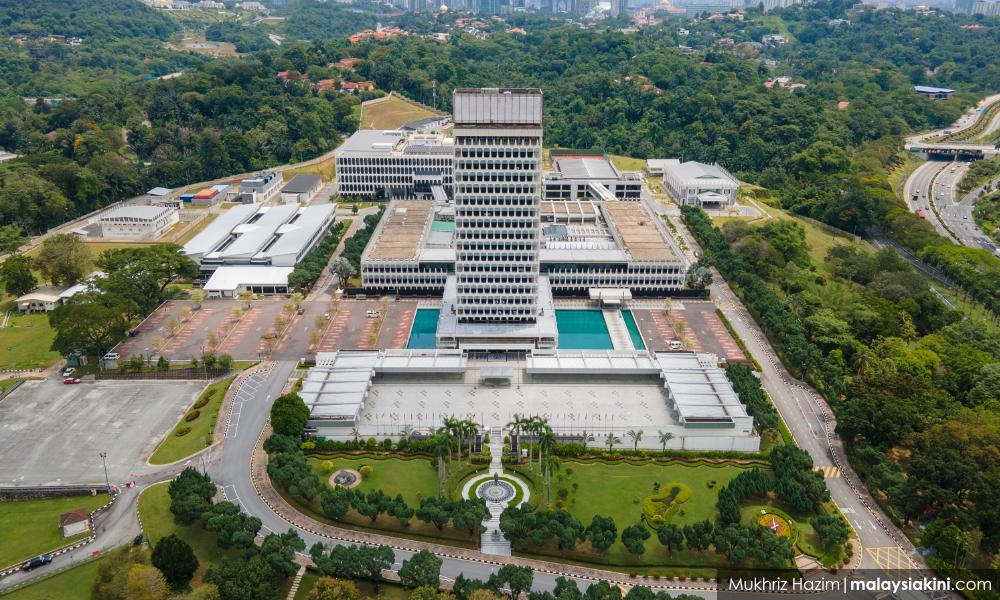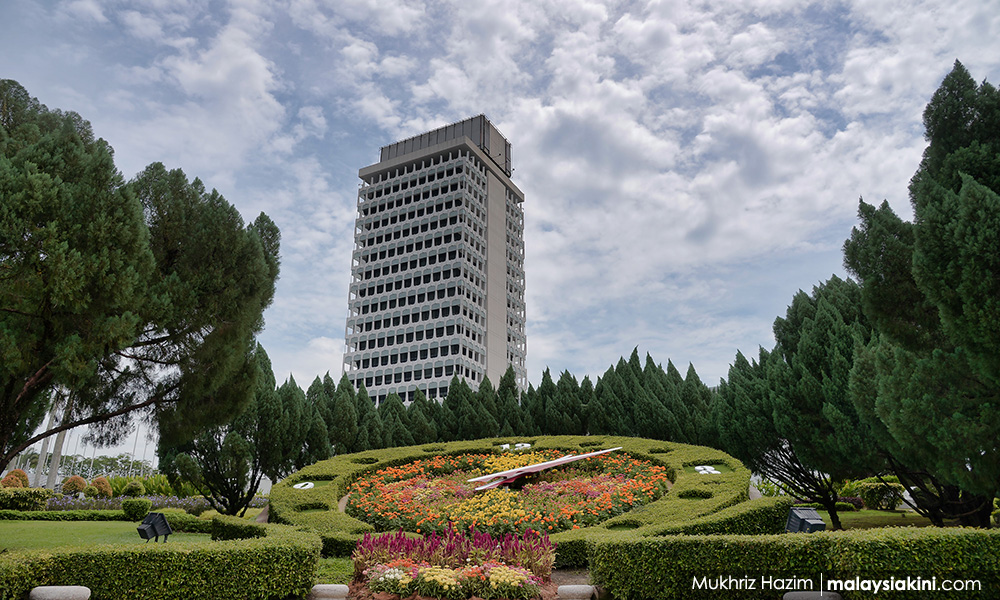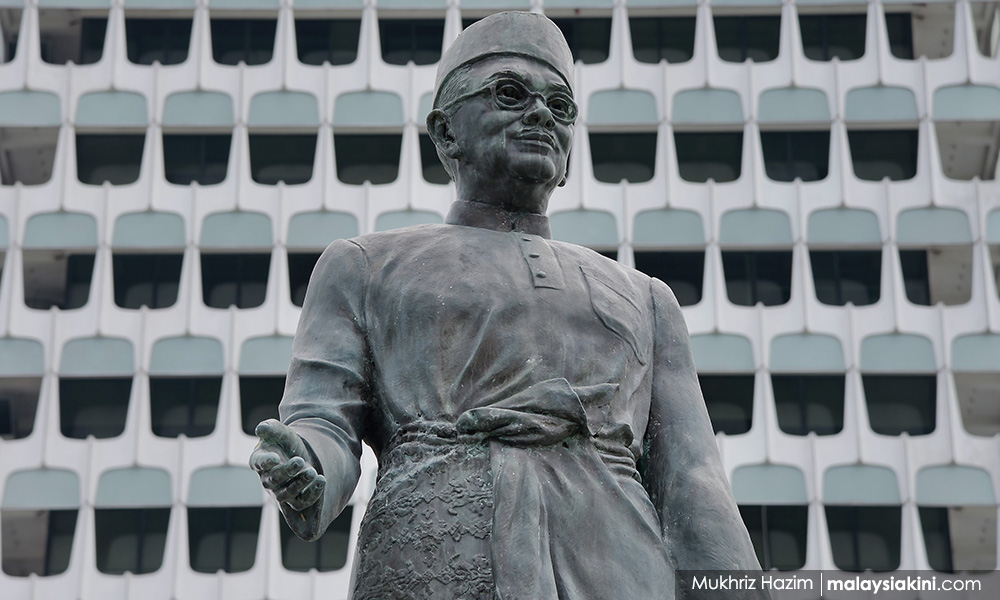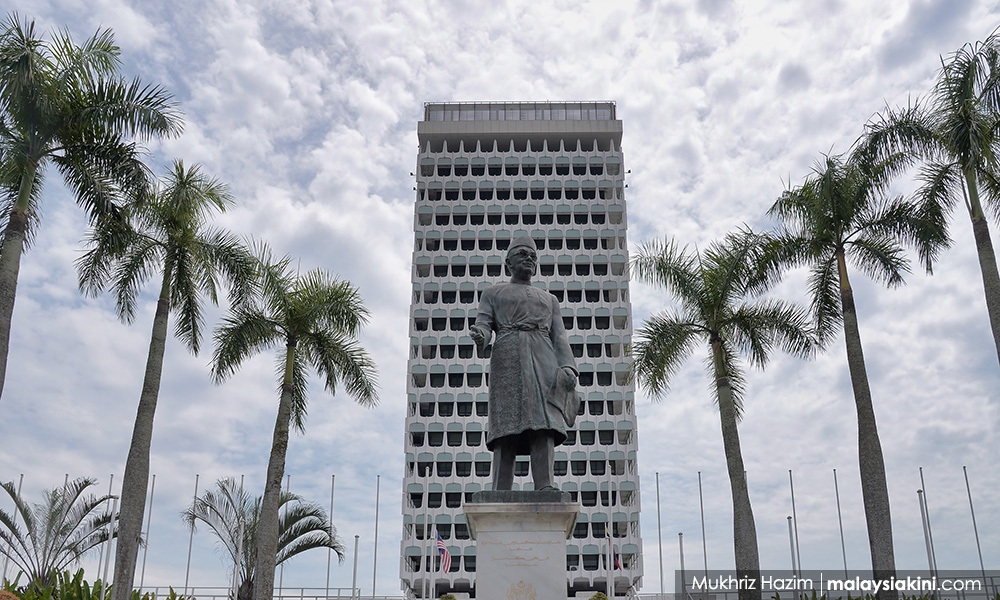Let’s call this one out. Both an anti-hopping law and having recall elections, as presently discussed in the public, are the wrong prescriptions to the problem of frequent changes of the government without an election. Such a change of government happens when the government losses the confidence of the majority of the members of the Dewan Rakyat or the State Legislative Assembly.
In considering the issue of party hopping, one must not lose sight of the law on loss of confidence. The prime minister must resign in that situation or face an election. It is inevitable that a loss of confidence involves a change of support and this is permitted in a democracy. It is therefore the law on confidence that must be looked at to mitigate the problem of political instability. But first, we should see why both an anti-hopping law and recall elections would not work.
Anti-hopping law
Generally, an anti-hopping law would provide that when an elected representative leaves his party, his seat would automatically be vacated and an election would be held again to elect the representative for the seat.
Sure, party-hopping could be a menace. But an anti-hopping law would not cure the mischief. Our elections have long been coalitional based. So, one could change allegiance without actually leaving the party.
Former prime minister Muhyiddin Yassin’s Bersatu is a case in point. The party’s MPs never left Bersatu. Yet, they were involved in the Sheraton Move which took away the nation’s political leader from Pakatan Harapan.
Likewise, the 11 PKR MP’s led by then deputy president Azmin Ali did not leave the party. They changed their support from former prime minister Dr Mahathir Mohamad/PKR president Anwar Ibrahim to Muhyiddin, and now Umno vice-president Ismail Sabri Yaakob.
If we had an anti-hopping law at that time, Syed Saddiq would have had his seat vacated when he became an independent MP and definitely when he switched to Muda upon its registration.
Consider the situation of Simpang Renggam MP Maszlee Malik. If he had directly joined PKR from Bersatu following the Sheraton Move, he would have had his seat vacated. Ironically, he, like all Harapan candidates, ran under the banner of PKR during the 2018 general election.
This highlights the reality that a coalition could be informal at times. One would recall that the Harapan coalition had not been registered during the 2018 general election. All the so-called Harapan candidates from PKR, DAP, Amanah and Bersatu ran under PKR’s banner. How does one decide whether their seats, other than those from PKR, should be vacated if they leave their party?

A slightly different situation arose during the 2013 general election.PKR, PAS and DAP candidates contested under their respective logos but ran their campaign on the basis of the Pakatan Rakyat coalition, which was not registered and lost marginally to BN.
However, after that election, the mainstream faction in PAS veered away from Pakatan Rakyat and was supportive of the prime minister from BN, Najib Abdul Razak. An anti-hopping law would have been especially ineffective to keep PAS within Pakatan Rakyat because PAS representatives ran under their own logo. This is notwithstanding that it is highly arguable that the people gave PAS candidates their mandate based on Pakatan Rakyat’s position.
Then, there is the problem where an elected representative is expelled from the party. To be meaningful, an anti-hopping law usually provides for the vacation of the seat in that situation. Otherwise, the elected representative may remain in the party whilst supporting another candidate as the prime minister or menteri besar.
At a first glance, such a provision would appear to address the issues with regard to coalitional politics that we have touched upon. The party leader could always sack the elected representative if he abandons the informal coalition.
However, the rule would also entrench the position of the senior leaders of the parties because the termination from the party would result in the vacation of the seat. This would make the elected representatives beholden to the senior leaders and would become their voices rather than the voices of the voters.
No one should be surprised if the anti-hopping law is abused by senior leaders to consolidate power within the party whether in the run-up to an internal party election or in its aftermath.
There is also a constitutional issue. This is due to the emergence of the doctrine of basic structure in the interpretation of the Federal Constitution as held by our courts in recent years.
In simple terms, under this doctrine, an amendment which alters the basic structure of the Federal Constitution would not be effective even if it had been passed with the requisite majority, two-thirds majority in Dewan Rakyat or otherwise as may be provided.
The anti-hopping law likely requires an amendment to the provisions of the Federal Constitution on freedom of assembly, in particular, to overcome the Nordin Salleh decision. But will the amendment offend the doctrine of basic structure?

In this regard, we have some guidance from the fact that the provisions on freedom of association are found in Part II of the Federal Constitution titled “Fundamental Liberties”. Therefore, freedom of association is probably part of the basic structure of our Federal Constitution.
Indeed, the Federal Court observed in Sivarasa Rasiah v Badan Peguam Malaysia [2010] that the rights guaranteed under Part II of the Federal Constitution which are enforceable in the courts form part of the basic structure of the Federal Constitution.
Thus, any proposal to curtail the right to change one’s political party must be assessed in the light of this doctrine as well as the importance of the constitutional right to be restrained. If pushed through, the result will be uncertainty in the validity of the anti-hopping law.
One may argue that there is an exception to freedom of association in the Federal Constitution itself where Parliament may by law restrict that right in the interest of public morality. In this regard, the argument is that party-hopping offends public morality. However, this argument will unlikely save an anti-hopping law.
This is because the Federal Constitution itself, by the provision on the consequences of the prime minister losing the confidence of the majority of the Dewan Rakyat envisages that the members of the Dewan Rakyat may change their support and by logical extension, may for that purpose, hop to another party.
So, changing one’s political party by itself could not be against public morality. Otherwise, the Federal Constitution would not have alluded to its permissibility.
Indeed, party-hopping is not necessarily immoral. Where the party itself has strayed from its expressed or long-standing position, an elected representative who stays true must have the right to remain on the path on which the voters had elected him and his party.
Recall election
A recall election provides for the mechanism for the voters to remove an elected representative from his seat.
There are normally four stages involved. First, a percentage of eligible voters in the constituency, say 1 percent, would initiate a recall petition. Next, once enough eligible voters have initiated a recall petition, another group of eligible voters, say 10 percent, must then endorse the petition within a specified period, say two months.
After that, if the petition is duly endorsed, the recall election would be held where the voters only decide “yes” or “no” to the sacking of the incumbent.
For the purpose of sacking the incumbent, the result of the recall election must fulfil two criteria.
First, the votes cast in favour of sacking must be more than the votes against. Second, the number of votes in favour of sacking must cross a certain threshold, say 50 percent of all eligible voters in the constituency whether they had voted or not.
Finally, another election would be held, namely, the by-election, to elect the new representative, only after the incumbent has been sacked at the recall election.

The rationale for the recall election is that it would be the voters who get to decide whether an elected representative who has defected gets to stay or be sacked. (Wong Chin Huat, Why recall elections and not anti-hopping law? Malaysiakini, June 27, 2020)
Pengerang MP Azalina Othman Said has suggested a three-stage process instead. Her version of recall election excludes the third stage above, namely the endorsement stage. (Azalina Othman, Consider recall law as better remedy system, Malaysiakini, March 21, 2022)
This is an insufficient safeguard to vexatious recall efforts as will be shown below. This is not to say that a four-stage process is adequate to prevent abuse.
Whichever version we are looking at, one would readily see how cumbersome the recall election process is. This would be especially wasteful and tiring when the defection had not resulted in the change of government. But the problem does not stop here.
One must also bear in mind that defection would not be the only basis for petitioning a recall election. It has been suggested that an elected representative may be recalled for non-performance and indeed, as was the case in Kaohsiung, Taiwan, because the voters were unhappy that the elected mayor contested for presidency within months after winning the mayoral election. (Wong Chin Huat, Malaysiakini, June 27, 2020)
Certainly, it would be ineffective to limit the grounds for petitioning a recall election. We have seen how difficult it is to define party-hopping. Defecting MPs will find ways and means to get around the law when defined.
Indeed, the involvement of the state in determining the appropriateness of the trigger for recall election would likely raise the constitutional issues with regard to freedom of association discussed earlier.
Under the recall election mechanism, it is for the voters to subjectively decide whether the elected representative should be changed. This is where recall elections, when implemented in Malaysia, would lead to political instability.
Political parties in Malaysia have their respective loyal supporters ready to act upon the command of their leaders. The political parties could easily garner 1 percent and 10 percent of
the voters from amongst their supporters to petition and endorse a recall election respectively.
Bearing in mind that the grounds for recall election is open-ended and based on the subjective views of the voters, one could expect that recall petitions will be launched every now and then. The result is continuous politicking at all levels throughout the country.
The solution: regulate confidence motion
The situation under which the Prime Minister must resign is specified in the Federal Constitution. It is when the Prime Minister no longer commands the confidence of the majority of the Dewan Rakyat.
However, the process to determine the loss of confidence is not set out in the Federal Constitution or indeed anywhere else.
There are two issues with regard to the process. First, the Standing Orders of the Dewan Rakyat do not expressly provide for the filing and tabling of a motion of no-confidence against the government or the prime minister.
At the same time, the Standing Orders expressly give precedence to government business and therefore there is no compulsion for the government to provide time to hear the no-confidence motion.

There is precedent in 2015 where no-confidence motions were accepted by the then speaker of the Dewan Rakyat but the government did not provide parliamentary time for the motions to be considered and decided so they just remained on the Motion List. (Ariff Yusof & Lutfi Hakim Ariff, Parliament, Unexpected 2022, p 229, 236, 239)
Second, we have the Federal Court’s decision in Nizar v Zambry [2010] which decided to the effect that the loss of confidence referred to in the Constitution need not be established only through a vote in the legislature (the Dewan Rakyat or the State Legislative Assembly). It could also be established by evidence of loss of confidence outside the legislature.
The combination of these two issues has undoubtedly made politicking the business of all seasons. While it is near impossible to compel no-confidence motions to be considered and decided in the Dewan Rakyat, party leaders could at all times try to influence defections, hold press conferences or display statutory declarations to prove the prime minister’s loss of confidence to the public and then seek audience with the Yang di-Pertuan Agong to confirm the same and get appointed as the new government.
The YDPA is above politics. Thus, the YDPA may act in their respective discretion in appointing the prime minister. This discretion cannot be challenged in court. Whether the prime minister appointed in fact has the support of the majority of the Dewan Rakyat may be tested by a motion of no confidence in the Dewan Rakyat.
However, the unintentional effect of the decision in Nizar v Zambry has been that it is the YDPA who must determine whether the prime minister in fact no longer has the confidence of the majority members of the Dewan Rakyat.
This, with respect, has the effect of embroiling the YDPA in politics, which in the eyes of the public may have been preceded by manoeuvring and defections on the part of the politicians. We have not even begun to take into account issues such as conflicting declarations of support.
The lofty status of the YDPA could undoubtedly be affected in the eyes of the public in this situation. This situation should be remedied.
Thus, it is important that the confidence provisions in the Federal Constitution be amended to provide that loss of confidence should only be determined based on a vote in the Dewan Rakyat.
At the same time, the Standing Orders must be amended to compel the Dewan Rakyat to consider and decide on no-confidence motions in priority to government business. After all, it is the convention of the Westminster type parliaments that the government allots a day for such a motion, which generally takes precedence over normal business of the day. (Richard Kelly, Confidence Motions, House of Commons Library, 2019, p 11 and 13 referring to Erskine May, Parliamentary Practice, 24th edition, p 344.)
Safeguards may be put in place by regulating the Standing Orders further to prevent abuse of no-confidence motions since it may be given priority.
The factors could include the question of whether the member moving the motion is the opposition leader or the leader of a political party or coalition with a substantial number of MPs or the number of MPs expressly supporting the motion.
Other factors could include the frequency such a motion could be proposed for the purpose of being given priority. Motions by a member who does not have serious support ought not to disrupt the business of the Dewan Rakyat.
These suggested amendments would strike a balance between providing political stability, the need to change the government and the preservation of freedom of association.
In the first place, politicians would know that they could only dismiss the prime minister by a vote in the Dewan Rakyat. It will not happen anywhere, anytime. They are also assured that the motion of no confidence could, as of right, be given priority in proper cases.
The regulation in terms of frequency is also vital so that the opposition would be careful in choosing the most appropriate occasion to launch the no-confidence motion instead of bogging down the Dewan Rakyat with their politicking.
So, let’s drop the present ideas of anti-hopping law and recall elections. To Harapan, regulating confidence motion is also a type of anti-hopping law. - Mkini
The views expressed here are those of the author/contributor, Abdullah Abdul Rahman and do not necessarily represent the views of MMKtT.

No comments:
Post a Comment
Note: Only a member of this blog may post a comment.